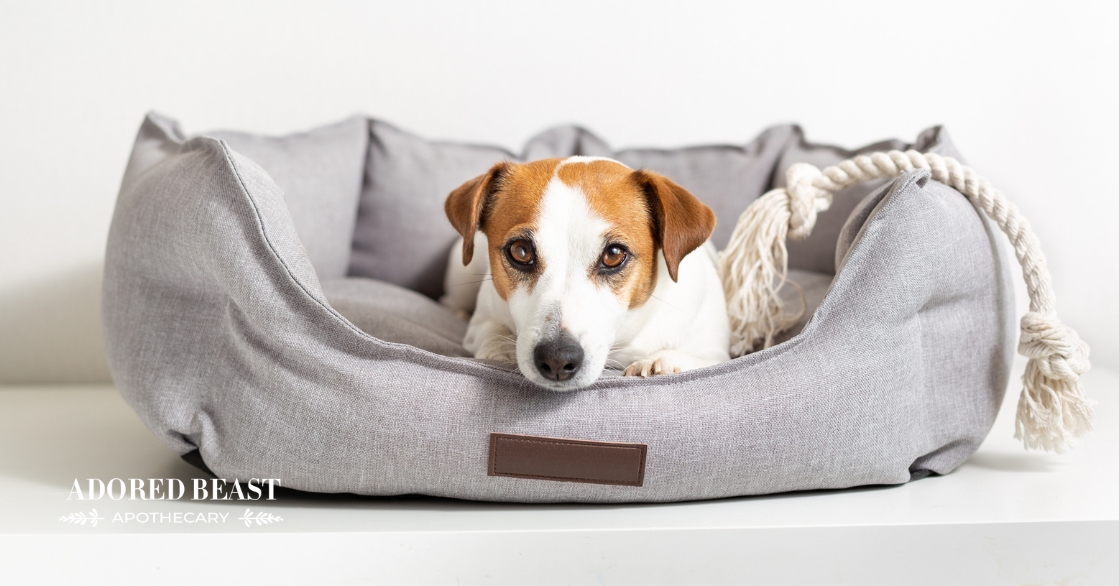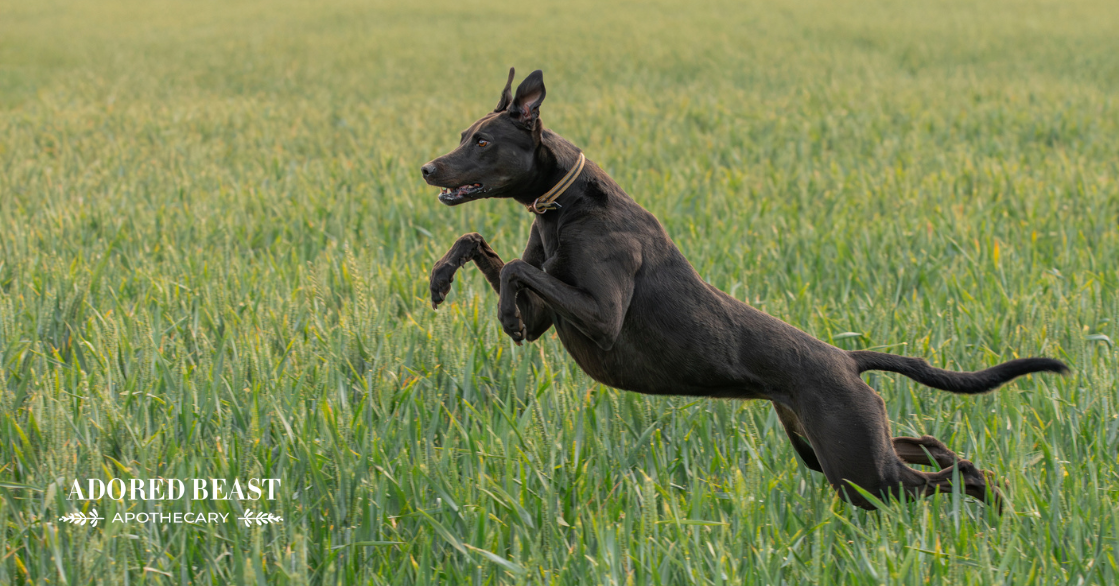Dig, dig, circle, dig, snuggle, circle, relax.
If you’ve ever watched your dog go to bed, chances are you’ve seen it – the dramatic, determined, furiously adorable bed-scratching routine. Sometimes it can look like they’re trying to dig a tunnel to the center of the Earth. But why do they do this? Why do dogs scratch their beds?
Whether it’s cute, comical, or occasionally a little concerning, bed scratching is a totally natural behaviour with a variety of reasons behind it. Let’s dig into the fun (and sometimes serious) motives behind your pup’s nighttime ritual.
Why Do Dogs Scratch Their Beds?
Why do dogs scratch their beds? Some of these make total sense, and some of them might surprise you!
1. “I’m Just Making It Perfect”
One of the most common reasons dogs scratch their beds is simple: they’re making their space just right. In the wild, their ancestors would paw and scratch at grass, leaves, or dirt to create a cozy nest. Even though your pup has a plush orthopedic mattress now, their instincts haven’t gone anywhere.
Think of it like: fluffing a pillow, straightening the sheets, and arranging the blankets to your liking.
2. Temperature Control
Dogs don’t have air conditioning or heated blankets, but they do have instincts. Scratching and circling their bed helps them regulate temperature. It’s their way of:
- Spreading out their weight for warmth, or
- Moving bedding around to cool down.
So if your dog scratches a lot before curling up, they may just be setting their internal thermostat.
3. Marking Their Territory
Dogs have scent glands in their paws. When they scratch, they leave behind their scent, essentially saying, “This bed is MINE.”
It’s subtle, but to another dog, it’s like a neon sign claiming ownership. This is especially common in multi-dog households where your pup may feel the need to stake their claim.
4. The Pre-Sleep Ritual
Some dogs scratch their beds out of pure routine. Just like you might check the door locks or read a book before bed, scratching can be part of their calming pre-sleep ritual.
It can help them settle down, burn off a touch of leftover energy, and get into sleep mode.
5. Instincts That Go Way Back
Scratching is a deeply ingrained behaviour linked to nesting and protection. Wild canines would dig into the ground to make a safe, enclosed sleeping spot that kept them warm and hidden from predators. Even though your pup’s biggest threat these days is the vacuum cleaner, those instincts are still strong.
[RELATED] Why Do Dogs Yawn? Decoding This Curious Canine Behaviour
When Scratching Might Signal a Problem
Most bed scratching is nothing to worry about, but sometimes, it can be a sign of something more:
- Excessive scratching that goes on long after bedtime might signal anxiety, stress, or compulsive behaviour.
- If your dog seems restless or uncomfortable, they might be dealing with joint pain, skin irritation, or parasites.
- If they’re scratching not just the bed but themselves constantly, that could be a sign of allergies, dry skin, or something that needs attention.
If bed scratching becomes obsessive or paired with other unusual behaviours, it’s worth talking to your veterinarian or a trusted behaviourist.
How to Support Healthy Scratching
You don’t need to train your dog out of normal bed scratching – it’s part of who they are! But you can help make it more comfortable and less destructive:
- Give them a durable bed that can handle their nightly excavations.
- Keep their sleeping area calm and comfortable.
- Trim their nails regularly to reduce wear and tear on the bed.
- Provide a cozy blanket or cover that they can dig at to their heart’s content.
Watching your dog scratch their bed can be funny, endearing, and a little mysterious. But at its core, it’s a sign of comfort, instinct, and a natural bedtime routine. As long as it doesn’t cross into obsession or discomfort, let them dig, scratch, and nest away. After all… we all have our little bedtime quirks.












